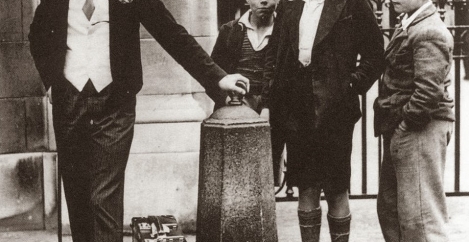January 29, 2020
Third of job seekers suspect class discrimination
 Two-thirds of employees believe class is an issue when it comes to securing a new job, with one in three saying they’ve been discriminated against because of it, a new study has claimed. In contrast, more than half of employers said they don’t think class discrimination is an issue when hiring.
Two-thirds of employees believe class is an issue when it comes to securing a new job, with one in three saying they’ve been discriminated against because of it, a new study has claimed. In contrast, more than half of employers said they don’t think class discrimination is an issue when hiring.
The study of 2,000 working professionals and 300 UK employers by CV-Library asked workers about the class-based discrimination they felt they faced during their job search. Respondents cited where they’re from (48 percent), their class (46 percent), the way they speak (43 percent), the school or university they attended (33 percent) and where they currently live (19 percent) as the main issues they faced.
Although 54 percent of employers denied that class is an issue when hiring, most admitted that they can be biased when assessing job applications (85 percent) and during interviews (86 percent). Almost as many workers (79 percent) also think employers show bias during job applications and interviews. When asked about the areas they make pre-judgements on during the hiring process, employers confessed that they do consider the way people speak (77 percent), where they’re from (45 percent) and their class (32 percent).
Lee Biggins, founder and CEO of CV-Library, said that whereas tackling discrimination around age, race, disability and gender has long been a focal point for companies, social class is rarely talked about. “Our study highlights the disconnect between how workers and businesses feel about the issue and it’s clear that more needs to be done to raise awareness of its impact on both organisations and job hunters”, he commented.
[perfectpullquote align=”right” bordertop=”false” cite=”” link=”” color=”” class=”” size=””]Among the employees surveyed, seven in 10 think legal measures should be taken to tackle class discrimination at work, with six in 10 employers agreeing. [/perfectpullquote]
“The TUC has already called for stronger workplace rights to counter the class privilege that remains in Britain today, but businesses hold responsibility too. Ensuring that your recruitment process is fair for all applicants is crucial, especially if you’re already struggling to find the talent you need to fill your vacancies.”
Among the employees surveyed, seven in 10 think legal measures should be taken to tackle class discrimination at work, with six in 10 employers agreeing. The researchers also asked employers whether they think companies should be forced to report any gaps in pay between workers from different social backgrounds, with 54 percent believing they should.
Just over half of the working professionals surveyed think their social class affects how much they get paid, with this figure rising to 57 percent among people who identify as lower middle class. However, only 40 percent of employers feel this is true.
Biggins added: “Pushing more responsibility on businesses to stamp out class prejudice is certainly something the Government should be considering right now, particularly as the country is at risk of wasting the skills and resource of some of our most talented workers.”
Image: Toffs and Toughs, 1937 by Jimmy Sime













